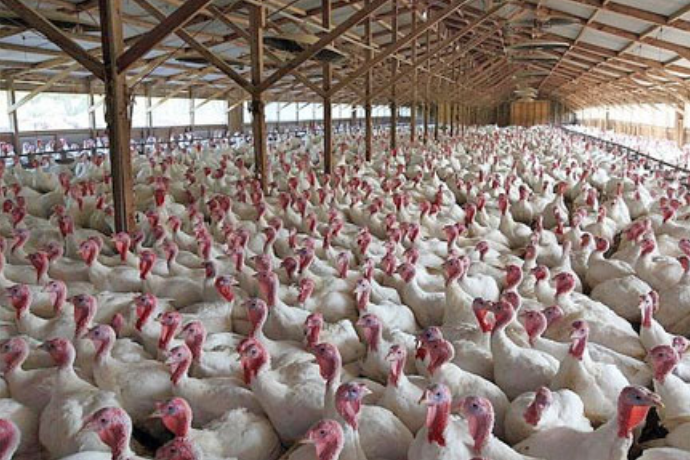WASHINGTON – The Animal and Plant Health Inspection Service (APHIS) of the US Department of Agriculture confirmed the presence of highly pathogenic H7N3 avian influenza in a commercial turkey flock in Chesterfield County, SC. This outbreak is the first one confirmed since 2017.
APHIS said the flock was tested after experiencing increased mortality. Samples from the affected flock were tested at the Clemson Veterinary Diagnostic Center, which is part of the National Animal Laboratory Network, and confirmed at the APHIS National Veterinary Services Laboratories (NVSL) in Ames, Iowa.
APHIS said the outbreak strain mutated from a low pathogenic strain that was found in poultry in that area. In March, routine testing uncovered the presence of low-pathogenic avian influenza (LPAI) on three farms in Union and Anson counties of North Carolina which are located on the North Carolina-South Carolina state line, adjacent to Chesterfield County.
“APHIS is working closely with the South Carolina State Veterinarian’s Office, part of Clemson University, on a joint incident response,” USDA said. “State officials quarantined the affected premises, and birds on the property were depopulated to prevent the spread of the disease. Birds from the flock will not enter the food system.”
After the discovery the LPAI strain, animal health officials established control zones extending 10 km (6.2 miles) from each infected farm, said Clemson’s Livestock Poultry Health (LPH) regulatory agency. One of those initial three zones extended into Chesterfield County.
Surveillance testing in the South Carolina portion of that zone identified a single commercial turkey farm as “presumptive positive” for H7 LPAI by Clemson’s Veterinary Diagnostic Center on March 14, said Clemson’s Livestock Poultry Health (LPH) regulatory agency. The flock in South Carolina and 11 total North Carolina confirmed and presumptive positive turkey flocks were destroyed before the discovery of the HPAI flock in Chesterfield County.
The South Carolina State Veterinarian’s Office said the avian flu is not related to the COVID-19 outbreak and presents no immediate human health concern. No human cases have been detected.
“The risk of a human becoming ill with avian influenza during a poultry outbreak is very low,” said Boyd Parr, state veterinarian and director of LPH. “However, it is of special concern for the poultry industry because it can cause sudden death in poultry.”
The affected flock was culled to prevent the spread of the disease. No birds from the flock will enter the food system, and USDA will compensate owners for any culled animals as part of the disease control efforts.
Federal and state agencies are collaborating on additional surveillance and testing in the nearby area. USDA said it will report the HPAI finding to the World Organisation for Animal Health (OIE) as well as international trading partners.
Animal health officials urge all bird owners, whether commercial producers or backyard enthusiasts, to continue to practice good biosecurity, prevent contact between their birds and wild birds, and report sick birds or unusual bird deaths to state or federal officials, either through their state veterinarian or through USDA’s toll-free number at (866) 536-7593.
Additional information on biosecurity for can be found here.


